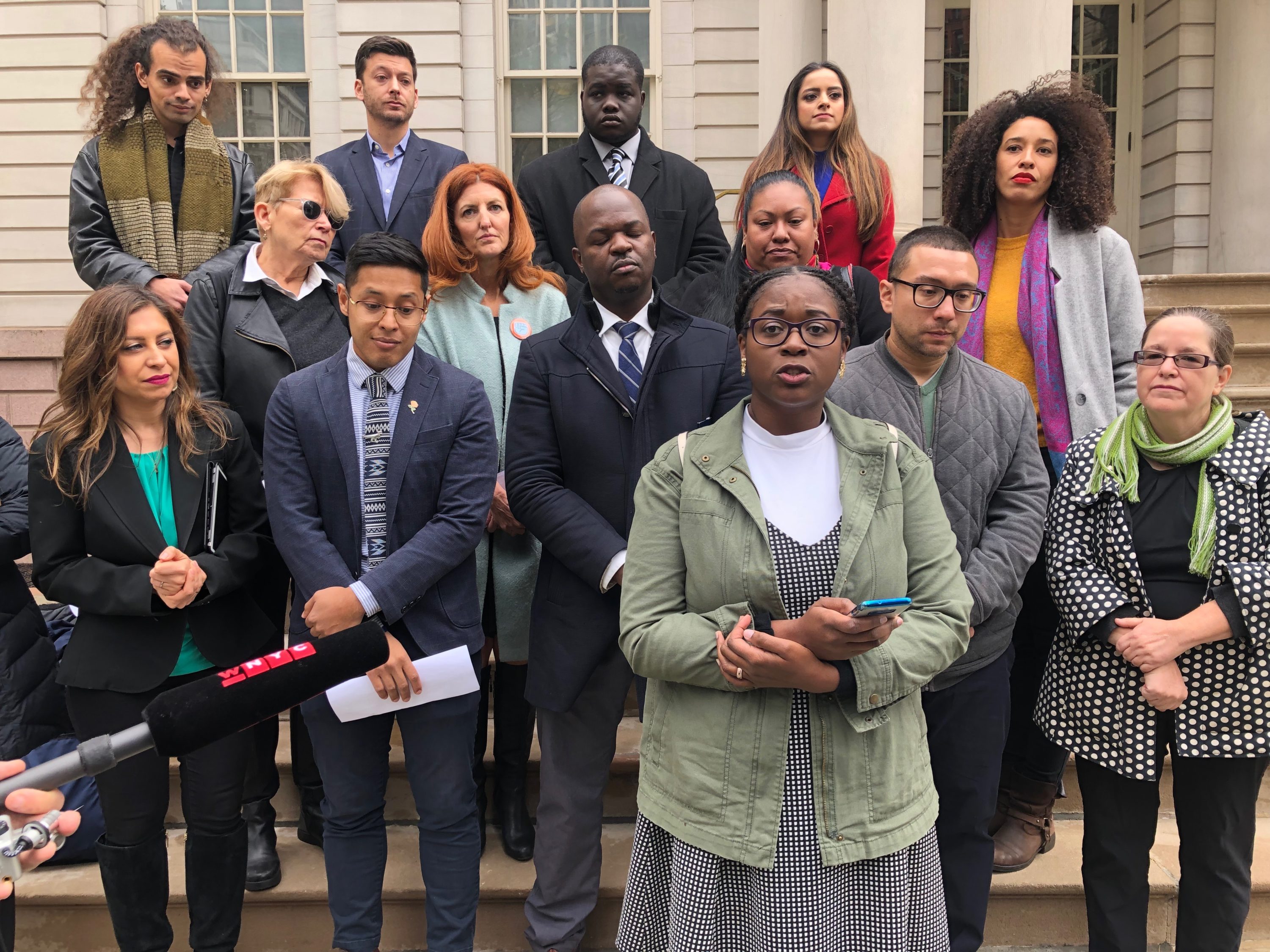Grassroots 2020 candidates demand major campaign finance reform to ‘level the playing field’

More than a dozen Democratic primary challengers for state office gathered on the steps of City Hall Thursday to demand a strong public campaign finance program that would match small donations from their supporters across the state.
Currently, New York State does not match any small donations for State Senate or Assembly campaigns — a precedent that grassroots candidates say makes it difficult to run robust, uncompromised campaigns against incumbents with deep pockets. A state-appointed commission will propose a public campaign finance program later this month, but candidates fear it will simply protect the status quo.
“Listen up and listen good,” said Phara Souffrant Forrest, a nurse and tenant leader who is challenging Crown Heights Assemblymember Walter Mosley. “The Public Campaign Finance Commission is under watchful eye. We want more people in the working class, grassroots, to have a chance to make a difference.”

Brooklyn Boro
View MoreNew York City’s most populous borough, Brooklyn, is home to nearly 2.6 million residents. If Brooklyn were an independent city it would be the fourth largest city in the United States. While Brooklyn has become the epitome of ‘cool and hip’ in recent years, for those that were born here, raised families here and improved communities over the years, Brooklyn has never been ‘uncool’.